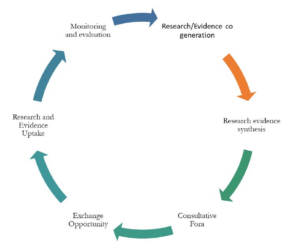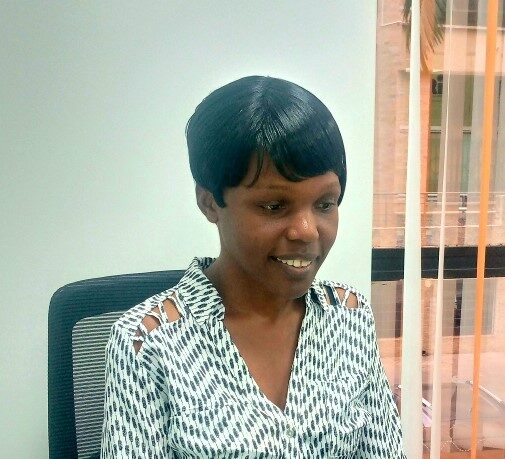Covid-19 has accelerated learning on bridging research and policy. In this guest blog the African Research & Impact Network (ARIN) share their East Africa Region Knowledge Translation Framework that seeks to enhance research use in emergencies and beyond.
These issues around research use in the global South will be explored at a forthcoming webinar: Looking beyond research co-production: Exploring the challenges of evidence use, with speakers including Leah Aoko of the African Research and Impact Network.
12 October 2023, 13:00–14:30 (UK). All welcome.
The fight against coronavirus is not yet over. As such there is a need to set clear priorities in the wake of future pandemics for countries to be better prepared. However, setting priorities to meet competing health needs with limited resources presents a big challenge to policymakers throughout the world. This is compounded during public health emergencies where such crises have to compete with regular programmes for the available resources, overwhelmed health systems and direct resources and healthcare attention to contain the outbreak. Moving forward, the lessons learned in the past three years need to be leveraged to provide clear direction on the crucial evidence co-production, knowledge synthesis and policy engagement required for optimal preparedness.
Learning from Covid-19
From the onset of the Covid-19 pandemic, reactive science was rapidly deployed. No evidence frameworks existed to support the response. Instead, most evidence had to be generated in response to the emergency even though this failed to account for the various uncertainties. Epidemiological and social evidence on Covid-19 impacts were commissioned by various donors and governments. However, the epidemiological evidence that included numbers/metrics like infection rates was given more prominence in decision-making across East Africa. As such, the actions taken failed to consider social implications on various groups, particularly the vulnerable who were already facing the impacts of climate change. While numerous evidence platforms existed, they widely remained as knowledge platforms for scientific discussions with little functionality in terms of linking the platforms to decisions.
Knowledge Translation Framework
Our proposed knowledge translation framework helps map a clear picture of challenges, starting from the country level, opportunities for knowledge creation and the potential actors/partners who can work together to make decisions on pressing issues to properly guide policymakers. It offers practical guidelines for policymakers to increase their familiarity with real-world situations by communicating research finding for them to promptly make the decisions needed to improve response and health policies.

The components of the framework are as follows:
- Research Evidence Co-generation: an ongoing process that allows researchers, communities and policy actors to collaboratively identify and address evidence needs
- Evidence Synthesis: identifying knowledge gaps, establishing an evidence base, and informing policymakers and practitioners
- Consultative Fora and Input: multi-stakeholder engagement is essential due to the cross-sectoral nature of pandemics
- Exchange Opportunity: a two-way pathway for sharing ideas, research evidence, experiences, and skills between researchers and research users
- Science, Policy and Local Knowledge Interface: assess inclusive pandemic response measures, community impacts and incorporate local indigenous knowledge
- Research and Evidence Uptake: knowledge utilisation by relevant knowledge users in their specific contexts to implement inclusive pandemic measures
- Monitoring and Evaluation: assessing the socio-economic strategies and policy responses related to pandemic response
Establishing interlinkages between communities and policy
Our research has underscored the importance of consolidating and effectively utilising existing research in emergencies and the critical need to bridge the gap between research and policy. According to East African Country policy makers and researchers we need to establish Interlinkages between evidence needs at the local level and in policy decision-making forums. Siloed approaches that treat community engagement and policy engagement as alternative pathways can result in approaches that either neglect community needs or fail to produce viable policy options.
To learn more about our work please visit – Re-addressing equity through evidence–driven COVID-19 recovery planning


